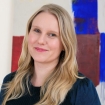{{item.title}}
{{item.text}}

{{item.title}}
{{item.text}}
*Unless stated otherwise, all societal impact data reflects the performance of our 21 largest firms.
We’re committed to increasing inclusivity, helping more people play a greater part in our economy and society.
We want to help communities develop the skills they need to thrive. So we’re working with non-governmental organisations (NGOs), social and micro enterprises - sharing the skills, knowledge and talent of our people. Our community initiatives have supported more than 21 million individuals, NGOs and social and micro enterprises since 2018.
One of the biggest barriers to inclusivity is the digital divide – who has skills to navigate the digital world and who doesn’t. This is a key challenge for young people in particular. More than 65 million young people are unemployed¹ worldwide and between 20-40% of jobs held by 16-24 year olds are at risk of automation by the mid-2030s².
We’re a community of solvers, so we’re working to change this, in collaboration with our stakeholders.
New world. New skills. is our global initiative intended to support more people to have the chance to learn, work and participate in the digital age.
¹International Labour Office.Global Employment Trends for Youth 2020 Report, pp.33.
²PwC UK. 2018. Will Robots really steal our jobs.
Read more about our community impact, commitment and approach.
Our FY22 Community Data and Methodology document
Download document
(pdf, 0.9mb)
Explore our impact on society and our planet in our 2022 Global Annual Review
Read more
Use the interactive tool to explore our community investment programmes by territory, focus area or Sustainable Development Goals (SDGs).
Central and Eastern Europe includes Albania, Armenia, Azerbaijan, Bosnia and Herzegovina, Bulgaria, Croatia, Czech Republic, Estonia, Georgia, Hungary, Kazakhstan, Kosovo, Kyrgyzstan, Latvia, Lithuania, Macedonia, Moldova, Mongolia, Montenegro, Poland, Romania, Serbia, Slovak Republic, Slovenia, Tajikistan, Turkmenistan, Ukraine and Uzbekistan.
Middle East includes Bahrain, Egypt, Iraq, Jordan, Kuwait, Lebanon, Libya, Oman, Qatar, Saudi Arabia, United Arab Emirates and West Bank and Gaza.

